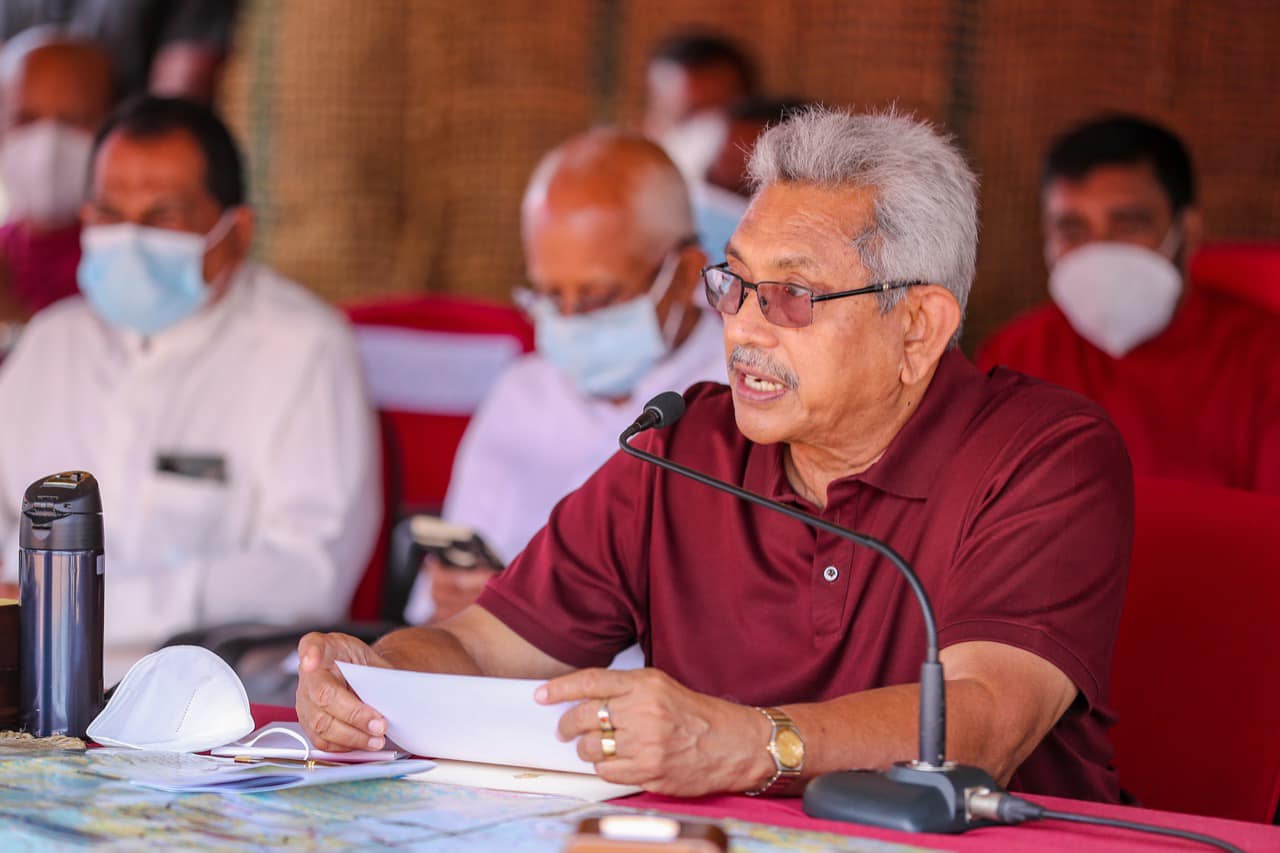
During a conference at Matara, in the southern province of Sri Lanka, Sri Lankan President Gotabaya Rajapaksa lashed out at “foreign and local forces” which he alleged are supported by “the mafias” and are “misleading the public”.
This comes as his government declared a wide-reaching prohibition of Tamil diaspora organisations and over 300 hundred individuals, including many who continue to reside in Sri Lanka and who have been placed at risk as the gazette details their addresses.
This proscription announcement follows a damning report by the UN High Commissioner which warned against the deterioration of human rights in Sri Lanka and highlighted “intensified surveillance and harassment of civil society organisations, human rights defenders and victims”. Tamil activists on the island are frequently interrogated over perceived links to the diaspora. Sri Lanka's embassies are also heavily invested in carrying out surveillance of, and advocating against Tamil communities in the diaspora.
Militarisation
During his speech, Rajapaksa went on to lambast the previous administration claiming that “the devastation caused in the last five years can repeat if the true progress is left unnoticed and you choose to believe lies and misled yourself”. “If you give into those lies the damage could be irreversible” he added.
Rajapaksa claims that under the previous administration “national security was ignored” and that this led to the Easter Sunday bombings. He furthers states that “war heroes were imprisoned on baseless charges and that “the country’s sovereignty was compromised by co-sponsoring the Geneva resolution”.
This he maintains was an attempt “to destroy the culture and religion associated with our unique heritage by provoking issues in relation to tamed elephants”.
Under the Rajapaksa administration, there has been a concerning escalated militarisation of the state apparatus and continued occupation of the North-East. He has established a Presidential Task Force which has been accused of further Sinhalisation of the Tamil homeland under the veil of archaeological protection. He has further appointed military officials accused of grievous human rights violations to key cabinet positions and established a commission that has called for the pardoning of those accused of war crimes and to punish those who came forwards.
During the first year of his administration, he pardoned the notorious war criminal Sunil Ratnayake who was one of the few Sri Lankan officials convicted of slaughtering eight Tamil civilians including three children.
Indophobia
In his speech, Rajapaksa also claimed that “the country was thrown into a crisis by entering into agreements such as the MCC Compact and the Eastern Container Terminal Agreement (ECT)”.
He further lashed out at India asserting that the sovereignty of Sri Lanka would not be betrayed by allowing other countries to achieve their geopolitical needs by introducing separatism under the guise of power devolution.
Sri Lanka’s unilateral withdrawal from the ECT agreement, worth an estimated $700 - $800 million dollars, caused tensions between India and Sri Lanka as India insisted that Sri Lanka abide by its agreements. India’s External Minister has also voiced concerns over the fate of Tamil Nadu fishermen who continued to be detained, and many have been killed, by Sri Lanka’s Navy. During the UN Human Rights Council session India abstained on the resolution and called upon Sri Lanka to abide by the 13th amendment and to ensure devolution.
Sri Lanka’s Foreign Minister has rejected calls to abide by the 13th amendment, claiming that it would lead to separatism. Fisheries Minister, Douglas Devananda, maintained that Sri Lanka would continue its policy of detaining Tamil Nadu fishermen.
Read more here.
We need your support
Sri Lanka is one of the most dangerous places in the world to be a journalist. Tamil journalists are particularly at threat, with at least 41 media workers known to have been killed by the Sri Lankan state or its paramilitaries during and after the armed conflict.
Despite the risks, our team on the ground remain committed to providing detailed and accurate reporting of developments in the Tamil homeland, across the island and around the world, as well as providing expert analysis and insight from the Tamil point of view
We need your support in keeping our journalism going. Support our work today.
For more ways to donate visit https://donate.tamilguardian.com.

